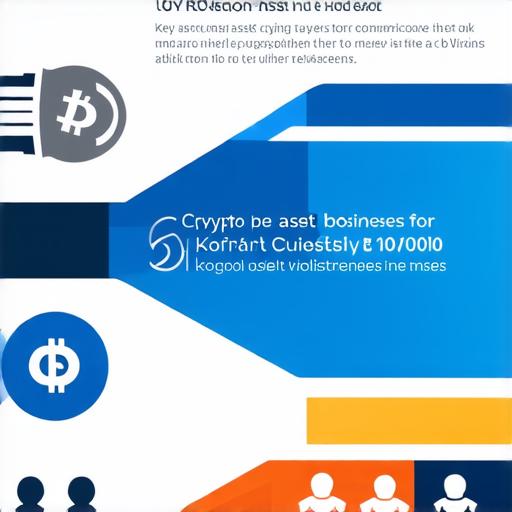
1. Definition of Crypto-Assets
Before diving into the regulations, it’s important to understand what crypto-assets are and how they work.
Simply put, a crypto-asset is a digital asset that uses cryptography for security and is stored on a blockchain network. This includes cryptocurrencies such as Bitcoin and Ethereum, as well as other types of digital assets like non-fungible tokens (NFTs) and utility tokens.
2. Anti-Money Laundering (AML) Regulations
One of the most important regulations that crypto-asset businesses must comply with is the anti-money laundering (AML) regulations. These regulations are in place to prevent the use of crypto-assets for illegal activities such as money laundering, terrorism financing, and other forms of financial crime.
Under AML regulations, crypto-asset exchanges and wallet providers must conduct customer due diligence on their users and transactions, report any suspicious activity to law enforcement agencies, and maintain records of all transactions.
3. Know Your Customer (KYC) Regulations
Know Your Customer (KYC) is a process that involves verifying the identity of a customer to prevent money laundering and other financial crimes. In the context of crypto-asset businesses, KYC regulations require businesses to collect and verify information about their customers before allowing them to access their services.
This can include personal identification documents such as passports or driver’s licenses, as well as proof of address and other identifying information.
4. Taxation Regulations
Another important regulation that crypto-asset businesses must comply with is taxation regulations. In the UK, crypto-assets are considered to be financial instruments and subject to capital gains tax. This means that any profits made from selling or trading crypto-assets are subject to taxation.
Additionally, crypto-asset businesses may also be required to register for value added tax (VAT) if they are providing services to customers in the UK.
5. Data Protection Regulations
As with any business operating in the UK, crypto-asset businesses must comply with data protection regulations such as the General Data Protection Regulation (GDPR). This means that businesses must obtain consent from their customers before collecting and processing their personal data, and must take appropriate measures to protect that data from unauthorized access or disclosure.
6. Consumer Protection Regulations
Crypto-asset businesses must also comply with consumer protection regulations such as the Consumer Protection from Unfair Business Practices (CPUBP) regulations. These regulations require businesses to be transparent about their operations and provide accurate information to their customers, as well as to treat their customers fairly and reasonably.
Failure to comply with these regulations can result in legal action against the business.
7. Banking Regulations
As crypto-asset businesses may involve banking activities such as deposits and withdrawals, they must also comply with banking regulations such as the Financial Conduct Authority (FCA) regulations. The FCA is responsible for regulating financial markets and ensuring that businesses operating in the UK are conducting their operations in a safe and secure manner.
8. Case Studies: Crypto-Asset Businesses in the UK
To better understand how these regulations apply to crypto-asset businesses in practice, let’s look at some real-life examples. One such example is Coinbase, a popular cryptocurrency exchange that operates in the UK.
Coinbase has implemented rigorous KYC and AML procedures to ensure that it is complying with all relevant regulations. The company also offers a range of security measures to protect its customers’ assets, including multi-factor authentication and insurance coverage.
Another example is Blockchain.
